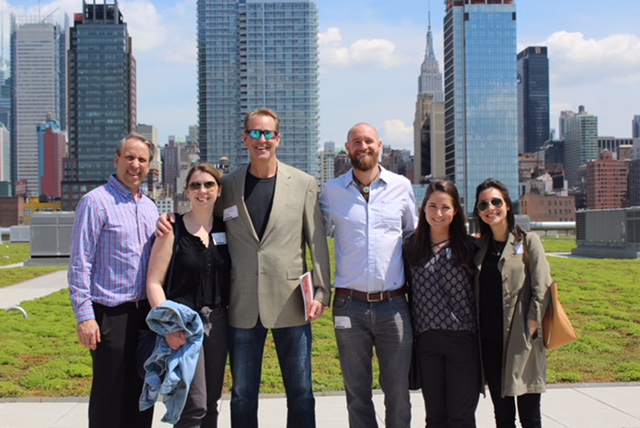JD Events Launching Plant Based World Conference & Expo

In its 17-year tenure, Connecticut-based trade show incubator JD Events has launched many successful shows —Travel Commerce Expo (sold to U.S. Travel Association in 2005), SATCON and HD World (now owned by National Association of Broadcasters and branded as NAB Show New York), to name a few. After selling Drone World Expo to Diversified Business Communications at the end of 2017, the company was on a mission to launch a trade show in a new marketplace.
Joel Davis, founder and CEO of JD Events, enlisted his son, Ben Davis, to help brainstorm ideas. Together, they began looking at the plant-based foods market, an area with which Ben was intimately familiar and passionate.
“When I learned plant-based eating was trending higher on Google than the Kardashians, that’s when it hit me that this was a serious and popular trend that we should investigate more deeply,” says Joel.
They hired an independent research to look into the market further, and they came back with remarkable statistics about the growing percentage of people identifying as vegetarian or vegan — as well as people who still eat meat, but want to incorporate more plant-based options in their daily lives.
Data from Nielsen — showing plant-based food sales topped $3.3 billion over the past year with a growth of 20 percent, as compared to only a 2 percent growth for all other foods in competing categories — helped solidify the idea to move ahead with launching a plant-based foods trade show.
The inaugural Plant Based World Conference & Expo, designated the official trade show of the Plant Based Foods Association, will take place June 7-8 at Javits Center in New York City.
It’s time for the plant-based industry to be taken seriously,” says Ben, reflecting on the go-big-or-go-home thinking behind selecting the host venue for the trade show. “The reaction we’ve gotten so far is in line with that.”
Plant Based World will be especially unique in the fact that it’s the first trade show centered around plant-based foods that’s targeting three types of customers.
“It’s very much a hybrid event,” says Joel. “It’s a B2B show in that we’re going after restaurateurs, retailers, investors and brands; yet we’re also targeting healthcare professionals like physicians, nutritionists and health-related influencers. And we’ll also be open to consumers on the second day.”
This is a departure from consumer-focused vegetarian food events like VegFest, VeggieWorld and VeganFest, where the public buys tickets to come taste the newest foods on the market. It’s also different than food shows strictly targeting buyers, like Natural Products Expo — which may not be strictly plant-based.
At the National Restaurant Association show last year, for example, “Daiya Foods [a plant-based dairy alternative company] was bumping up against a bacon booth,” Ben recalls. “You won’t be touching bacon [at Plant Based World].”

Ninety percent of the show floor will be plant-based foods and beverages, ranging from whole-food plant alternatives to less-healthy [yet meat/dairy-free] desserts. One brand they’re especially excited about is Good Catch Food, which just launched a meat-free tuna.
Four months out from the show, the Davises are projecting attendance of around 500-1,000 for the healthcare track; another 500-1,000 for the B2B track; and 1,000-2,000 people for the consumer day. They’re aiming for at least 100 exhibiting brands across 15,000 net square feet — and are about halfway there.
“We have really good momentum building,” says Joel.
Marketing to three separate audience segments has necessitated three different communication strategies, says Ben. As content and communications director for Plant Based World, he’s been tapping into healthcare influencers to help promote the show — for example, hiring health care industry speakers with large social media followings, as well as working with athlete influencers on the consumer side.
“People in the food retail business are going to listen to things differently than people building a plant-based brand or a health care practitioner who’s teaching their patients about plant-based eating,” says Ben.
Despite the challenges, the Davis’ personal vested interest in the plant-based food category keeps each day exciting. For example, Ben snagged a 3-lb. container of Good Catch Foods’ meat-free tuna at the Winter Fancy Food Show before it even hit store shelves.
“That stuff is so good,” quips Ben, “you could [have sold] it on the vegan black market.”
Don’t miss any event-related news: Sign up for our weekly e-newsletter HERE and engage with us on Twitter, Facebook, LinkedIn and Instagram!


Add new comment